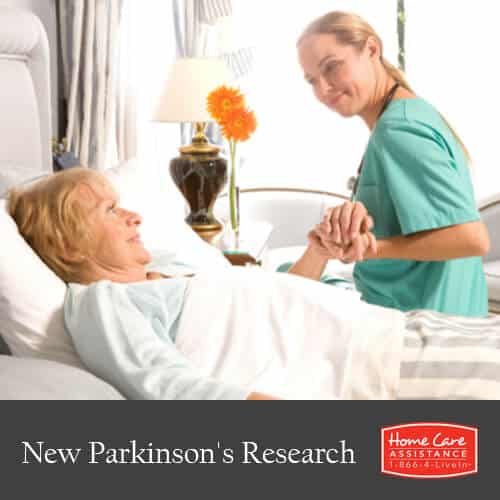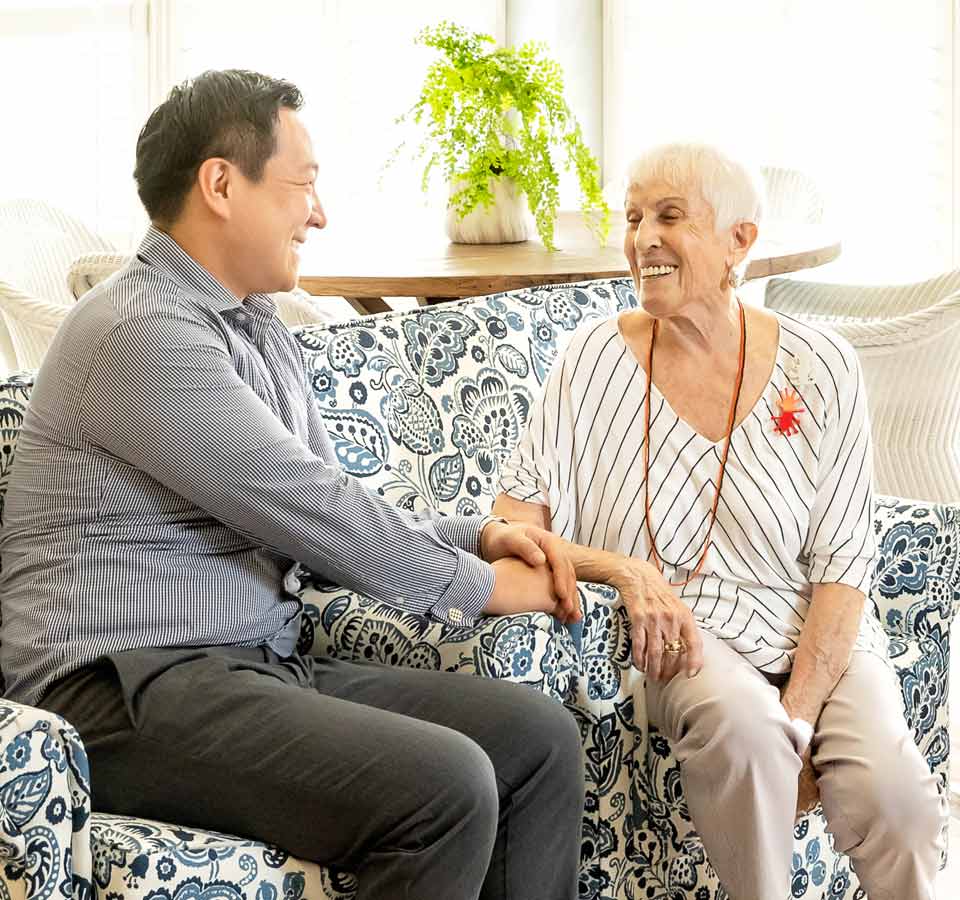Things To Know About Assisted Living For Someone With Parkinsons
Assisted living facilities are not equipped to provide medical care, which your loved one with PD may need. You may be able to hire extra help, or the facility may charge additional for help with dressing or eating.
Doctors who see people at assisted living facilities are contracted, not employees. If you need to talk to them, make an appointment rather than hanging around the facility and asking them questions.
Medications for PD are complex, and as a person ages, they may receive additional prescriptions for other conditions. Its important for medication management to be overseen by a neurologist who is a movement disorders specialist, as they are trained in understanding the different medications for PD and potential interactions with other drugs.4
How Do We Find The Right Nursing Home Facility
Finding the right nursing home takes time. It is important to begin the search for a suitable nursing home well before you will need to take the step of moving. There are often long waiting periods. Planning ahead can also make the transition of moving into a nursing home much easier.
Family and caregivers should talk about what services will be needed. Take time to consider what services are important to you before calling different nursing homes. Think about what kind of help is needed and how often it’s needed.
Before scheduling a visit to the nursing homes you are interested in, ask about vacancies, admission requirements, level of care provided, and participation in government-funded health insurance options.
Bathing And Personal Care Tips
For someone with Parkinsons disease, showering is typically preferred to taking baths because getting in and out of the tub becomes increasingly difficult. However, some people with PD may eventually experience changes in the brain that affect memory, judgement and focus. The Alzheimers Association estimates that 50 to 80 percent of Parkinsons patients experience these and other symptoms of dementia. Individuals living with Parkinsons disease dementia and Lewy body dementia may benefit from some adaptations, assistive devices and caregiving techniques that are used in dementia care.
For example, many dementia patients are confused or even frightened by the sound and feel of running water while showering. If your loved one requires assistance with bathing, be sure to give them time to adapt to the situation and understand what is happening. Gently talk them through the process, ensure they are warm and comfortable, and start by cleansing less sensitive areas of the body, such as the feet and hands, before proceeding to other areas.
You May Like: How Long Does A Parkinsons Patient Live
Recommended Reading: Masked Facies Parkinson’s Disease
Parkinsons Care At Home
At The Good Care Group, we have been supporting people to live a purposeful and meaningful life with Parkinsons disease care for over 10 years. We know how worrying it can be for families when faced with the reality that a loved one is living with the condition. However, a Parkinsons diagnosis does not mean you cannot live well with the disease, maintaining as much independence as possible with the right level of care and support.
Stay at home with high quality Parkinsons disease care
Receiving compassionate care in the comfort, safety and familiarity of your own home has far reaching benefits in improving overall health and wellbeing for a person living with Parkinsons, as opposed to moving into a care home.
Moving at any stage in life can be disruptive and stressful, and so much more so when faced with a diagnosis of a condition like Parkinsons. We know that staying at home and receiving compassionate, one-to-one care from a highly trained and well-matched professional carer improves quality of life for an individual living with Parkinsons disease. Our personalised approach to providing high quality Parkinsons disease home care, with a fully managed and flexible service that families can rely on is setting the standards in live in care for those with Parkinsons.
Alternatives To Assisted Living Care For Parkinsons Patients

Assisted living care is an excellent form of long term care for Parkinsons patients, but its not the only form of care at your disposal. The most common alternative to assisted living facilities is in-home health care, which can range from a full-time live-in nurse to regular visits from a registered nurse and rehabilitation specialists.
In severe cases where Parkinsons patients require 24/7 medical monitoring, it may become necessary to transfer from an assisted living facility to a skilled nursing home.
If the Parkinsons patient in question is expected to require skilled nursing care in the near future, it may be wise to choose an assisted living community that also offers a skilled nursing unit. Transferring internally within a community is much easier than an external transfer, and it allows the senior to remain in the community where theyve already made social connections.
Don’t Miss: Does Parkinson’s Cause Memory Loss
Q: Can Someone With Parkinsons Get Long Term Care Insurance
After being diagnosed with Parkinsons disease, its extremely difficult for the patient to obtain long term care insurance. Most applications are denied by the insurer, and those that are approved will require a hefty premium.
In such cases, its often better for the caregiver to apply for long term care insurance instead. For more information about long term care insurance policies for Parkinsons patients and caregivers, read this helpful article from the Parkinsons Foundation.
Impulsive And Compulsive Behaviour
Some patients who take dopamine agonists can experience problems controlling impulsive or compulsive behaviour .
Impulsive behaviour refers to the inability of patients to resist carrying out certain activities, some of these activities could be harmful to themselves or others. In many cases, this behaviour is out of character.
Compulsive behaviour refers to an overwhelming urge to act in a certain way to reduce the worry or tension this urge produces. This behaviour can be expressed in a number of ways, including addictive gambling, impulsive shopping, binge eating and hypersexuality.
Nurses who suspect a patient might be experiencing compulsive or impulsive behaviour should discuss the issue with the patient and the patients neurologist or GP as soon as possible.
Also Check: Prayer For Parkinsons Disease
Don’t Miss: Best Parkinson’s Doctors In Usa
What Does Our Parkinsons Care Include
Specialist nurse-led Parkinsons home care
Importantly for those living with Parkinsons, we provide nurse-led care which means our professional carers are trained to monitor and identify any changes in your health, responding appropriately and avoiding any unnecessary hospital admissions. As part of our commitment to delivering a high-quality home care service, we monitor and measure health outcomes to ensure we continually improve the care we provide.
Managing and administering medications
Our professional Parkinsons carers are trained in medications management and use an electronic medications system to ensure all medications are managed proactively and effectively. They will also collect prescriptions from the pharmacy. They will also collect prescriptions from the pharmacy.
Ensuring safe mobility in and around the home
We have an in-house Occupational Therapist, Jackie Cooper who will provide expert guidance and advice as to what equipment can improve safe movement and mobility around your home, whilst minimising falls. Jackie is well placed to provide advice and recommendations as to any home adaptations that may make life easier.
Companionship as and when you need it
Our carers will provide companionship whilst ensuring your privacy is respected. We ensure that a perfectly matched carer shares similar values and interests as you to make life interesting, stimulating and enjoyable, whilst being there for you to support your emotional and psychological needs.
Parkinsons Disease And Assisted Living
Caring for a loved one with Parkinsons disease can be stressful, emotionally and physically draining and financially taxing. And while people living with the disease may wish to remain at home as long as possible, sometimes that isnt the best option. The good news is that assisted living communities can provide the ideal setting for those with Parkinsons.
Read on for information about the disease itself, how assisted living can help, and what to look for in an assisted living community for a loved one with Parkinsons Disease.
Also Check: What Is The Medication For Parkinson Disease
Costs Of Our Parkinsons Care
The cost of care for people living with Parkinsons and advanced neurological conditions will be typically higher, as it is a specialist care at home service.
It is worth considering however that live-in care is often cheaper than the total cost of domiciliary care for people living with Parkinsons. When a person is receiving hourly care, provided by a domiciliary care provider it is likely that you will be charged extras for additional services to support the persons Parkinsons needs on top of the cost of a carer visiting. These extras add up and can become costly over time. The total cost to provide hourly care to someone living with high or complex needs can sometimes exceed the price of an inclusive live-in care service.
Parkinsons care at home is typically in line with and sometimes less than what you would pay for residential care, with the added benefit of receiving one-to-one tailored care for the person living with Parkinsons, which simply cannot be achieved in a care home.
Social Security Disability Insurance
SSDI, often referred to as simply Disability, is assistance intended for those individuals who are of working age and cannot work as a direct result of their medical condition. The SSA does not provide care assistance but instead provides financial assistance that can be used for care. To be eligible one must both have a written diagnosis of Parkinsons Disease and have earned monthly income of less than approximately $1,000.
Read Also: Why Do Parkinson’s Patients Keep Their Eyes Closed
Selecting Health Care Professionals For Parkinsons Disease
Because of the complexity of Parkinsons disease and the wide range of effects that the disease has on a personâs physical, emotional, and cognitive functioning, a number of health care professionals are usually required to help manage the disease effectively. Health care professionals who may be able to help an individual adapt and cope with Parkinsons disease include:
- Primary care physician or nurse practitioner
- Physical therapist
Parkinsons Disease And Senior Care

Family Assets Staff
Parkinsons disease is a nervous system disorder of the brain that affects movement. The disease is more commonly seen in older adults. Men are also 1.5 times more likely to develop Parkinsons disease than women. The disorder often leads to the need for long-term care, particularly with Parkinsonâs disease progression. After reading this guide, you will have a better understanding of the stages of Parkinsons disease and the care needs and long-term care options available to those who have this disease.
Also Check: Best Edibles For Parkinson’s
Healthcare Power Of Attorney
A healthcare power of attorney allows an individual to appoint an agent to make healthcare decisions on their behalf if they should become incapacitated and unable to communicate their wishes.
This would include decisions about lifesaving measures such as resuscitation as well as administration of nutrition through an intravenous or feeding tube if the individual becomes unable to eat.
This document also gives the agent the ability to make decisions about providing care staff with do-not-resuscitate instructions for the person with Parkinsons disease as part of the persons end-of-life wishes.
It is important to note that a power of attorney for health care does not allow an agent to make decisions for an individual until they are no longer able to do so for themselves. Therefore, a person with Parkinsons disease remains in control of their healthcare decisions as long as they have the .
As noted above, all POA documents including the healthcare for power of attorney should be written as durable so these documents remain effective even if the principal becomes incapacitated.
The Prevalence Of Parkinsons Disease
According to the nonprofit Parkinsons Foundation, approximately 60,000 Americans are diagnosed with the disease each year, and nearly one million people will be living with Parkinsons disease in the U.S. by 2020.
If youre a caregiver for a loved one with Parkinsons or you suffer from the disorder yourself, this guide is designed to provide you with the key information you need to know if youre considering the transition to assisted living.
Also Check: Loss Of Smell And Parkinson’s
Advice For Nursing Care
People with Parkinsons have specific needs and care requirements. Most important is that they receive their medication on time, every time. Nurses should also be aware of the on/off nature of the condition.
Some patients say they are on when their drugs are working and symptoms are mostly under control. If they go off, their symptoms are not under control and it becomes harder for them to move some may stop moving altogether. Patients might change from on to off very quickly, like a switch.
The way in which Parkinsons affects patients can vary from hour to hour and day to day, and it also varies widely between individual patients. The amount of help and support they need also varies. Nurses should therefore listen to patients and their families about how the condition affects them.
It is important to ensure that patients have access to a varied and balanced diet nurses should take account of any swallowing or movement problems that could lead to malnutrition. It is also important to remember to give patients time to answer when talking to them. It may take them time to respond, but this does not mean they are not listening or do not understand.
How Do I Pay For Assisted Living For Elderly Parkinsons Patients
For starters, Medicare does not cover costs for assisted living for elderly Parkinsons patients. For low-income seniors, there is the option of Medicaid. However, the NCPC reports that only 11 percent of seniors in assisted living used Medicaid to pay for care in 2002. This may be due to the stringent rules for Medicaid recipients, such as they cannot have assets worth more than $2,000 in total.
The best solution for seniors is to purchase long-term care insurance to cover the costs of assisted living. Long-term care insurance typically covers this expense, but check the contract details to verify coverage. Ultimately, its the family that pays for care. The NCPC reports that 75 percent of patients depend on family members to pay out-of-pocket for assisted living.
Also Check: Parkinson’s Disease Brain Changes
John Lives At Home With His Wife Joan Who Is Living With Dementia John Has Problemswith His Speech And Movement And Due To Joan’s Short
Due to the couples complex needs they would get very frustrated with each other which lead to constant arguments. The local authority reviewed the situation and felt that John and Joan would better off living apart. Despite their frustrations with each other due to their individual needs and level of dependence on each other, they desperately wanted to stay together at home.
Prestige Nursing & Care put a care package in place for 14 hours a day for 12 weeks to support their needs to ensure they could continue to stay together. A more mature and experienced care team was provided by Prestige to help John with his mobility and support his communication with Joan, which in turn meant there was less frustration between the two of them. The care team were proactive in managing Johns medications regime which meant his Parkinsons symptoms were better managed and less prominent. Prestige worked in partnership with their case manager to ensure the right care was being provided for John and Joan. They continue to live together at home with our care and support.
Focus On Life Outside Parkinsons
Its easy to let Parkinsons overtake your life together, especially as the disease progresses. Try to focus on the good moments and remember that you both have a life after Parkinsons. Discuss other topics with your family and friends and try to participate in fun experiences as much as you can. Take trips while you are still able to do so together and check items off their bucket list when possible. You wont regret having these happy memories to treasure later on.
Recommended Reading: Can Parkinson’s Cause Back Pain
Do People With Parkinsons Need A Caregiver
There is no one answer to this question, as each persons individual situation is different. However, in general, people with Parkinsons disease may benefit from having a caregiver, especially if their symptoms are severe. A caregiver can provide assistance with activities of daily living, help manage medications, and provide emotional support.
We refer to caring as everything we do to assist a friend or relative who is ill or disabled as a result of their illness or disability. It is an ever-changing role for Parkinsons disease caregivers, with their demands increasing with each passing year. A caregiver is often a health care advocate for their loved one, manages medications, schedules appointments, and assists with daily needs. Diagnosed with Parkinsons disease in the early stages, caregivers are assisting their loved one with the diagnosis and learning how to manage their medications. The caregivers responsibilities and burden increase significantly during the mid-stage of the disease. Changes in the way a person thinks in late stage PD can also include changes in the way they act.
Renting Out Your Home

If only one parent is still living, or if both parents need assistance with daily living, the family home can be an important resource. Selling is an option, of course. But in many families, mom and dads house is cherished and family members arent ready to make this decision. In this case, consider renting out the house and using the rental income to pay for assisted living. The idea of being a landlord might seem scary, but for a percentage fee you can hire a service to manage the property for you.
You May Like: Autonomic Dysfunction Parkinson’s Treatment
